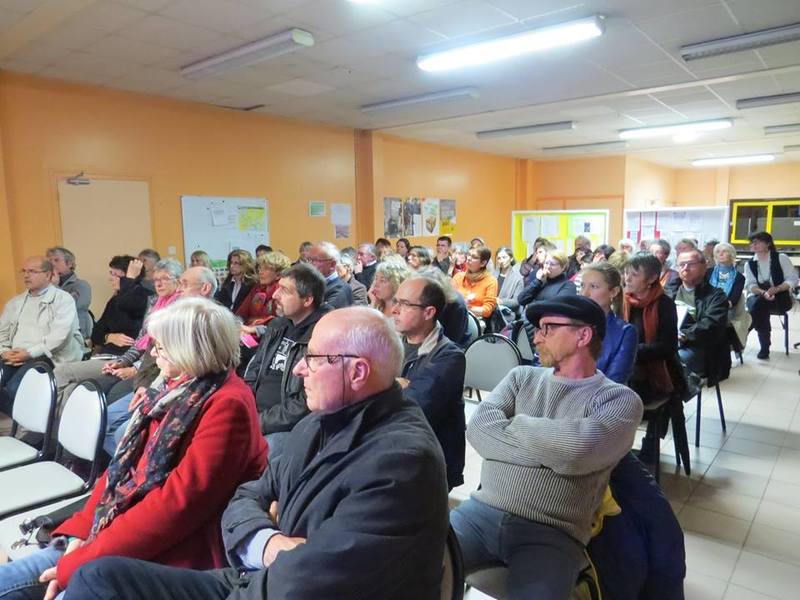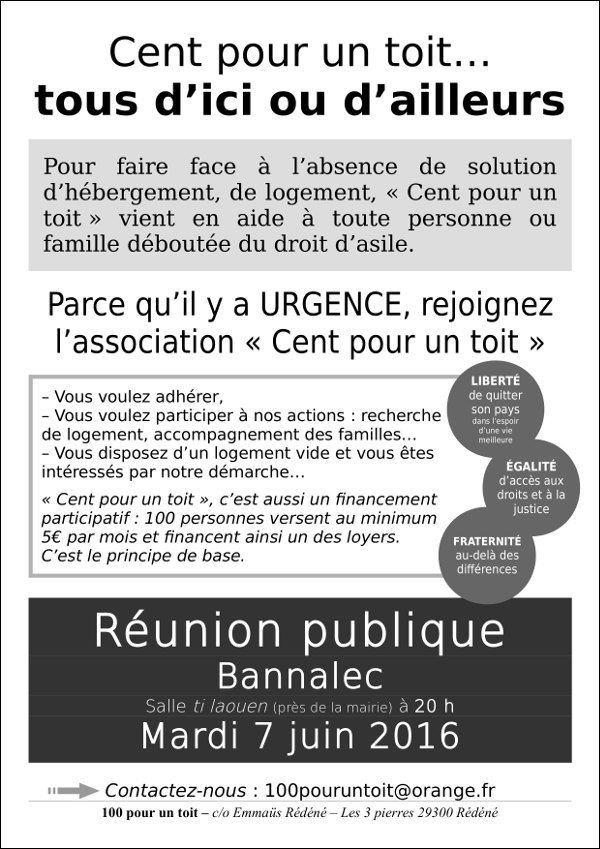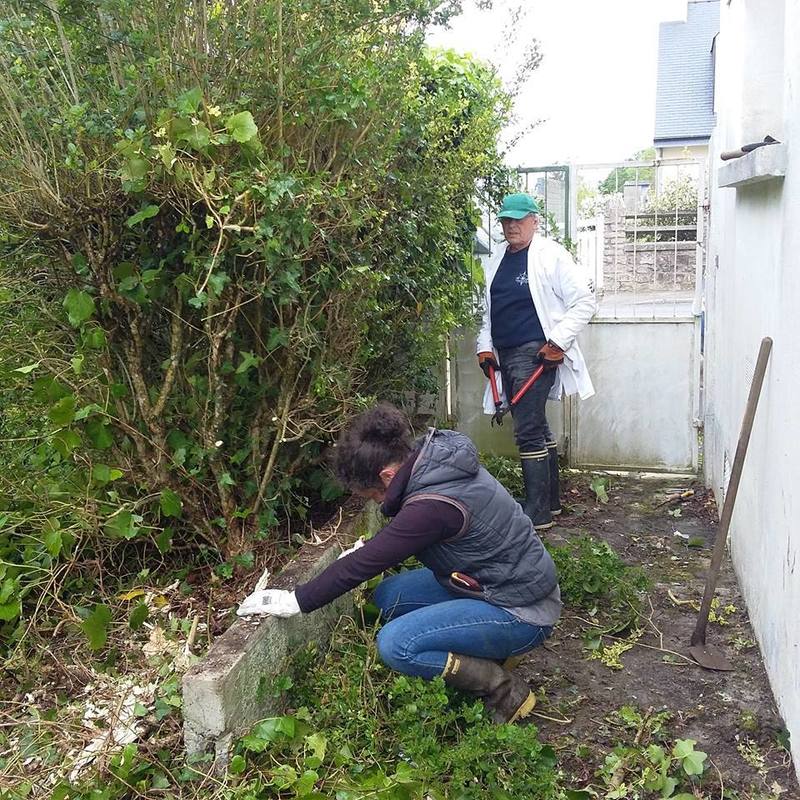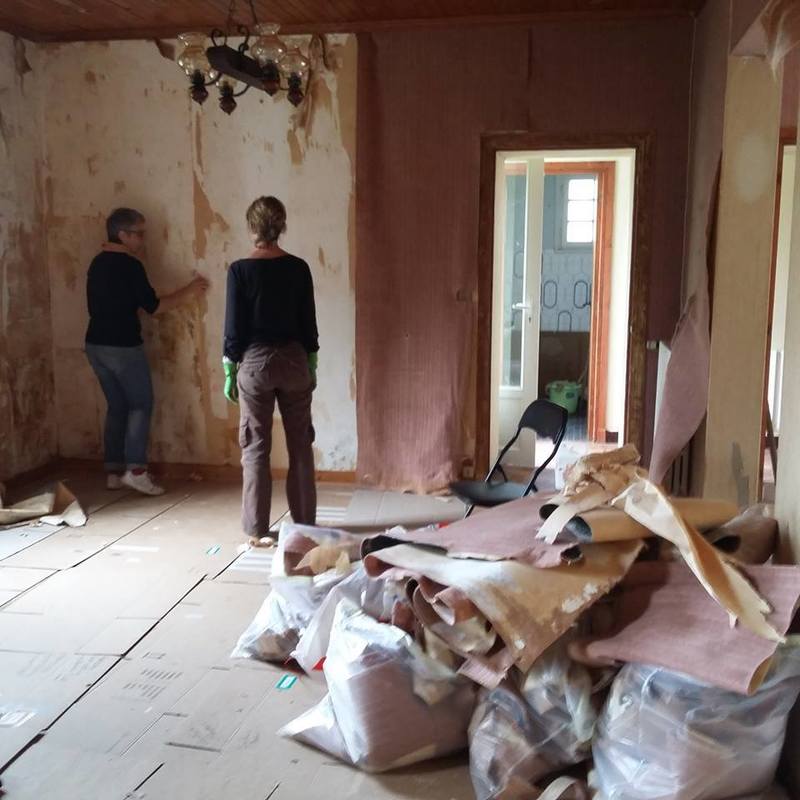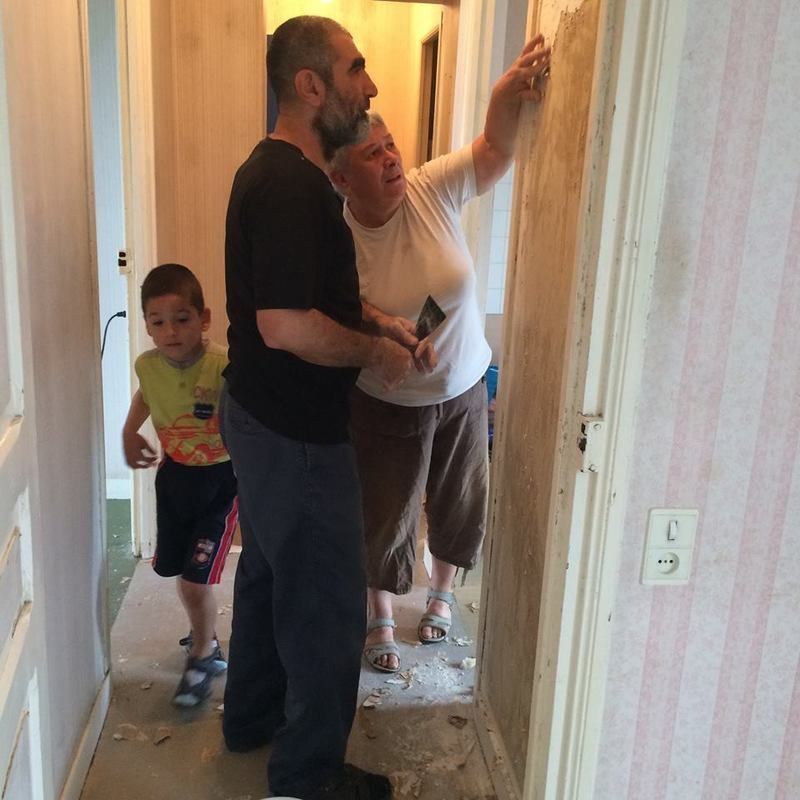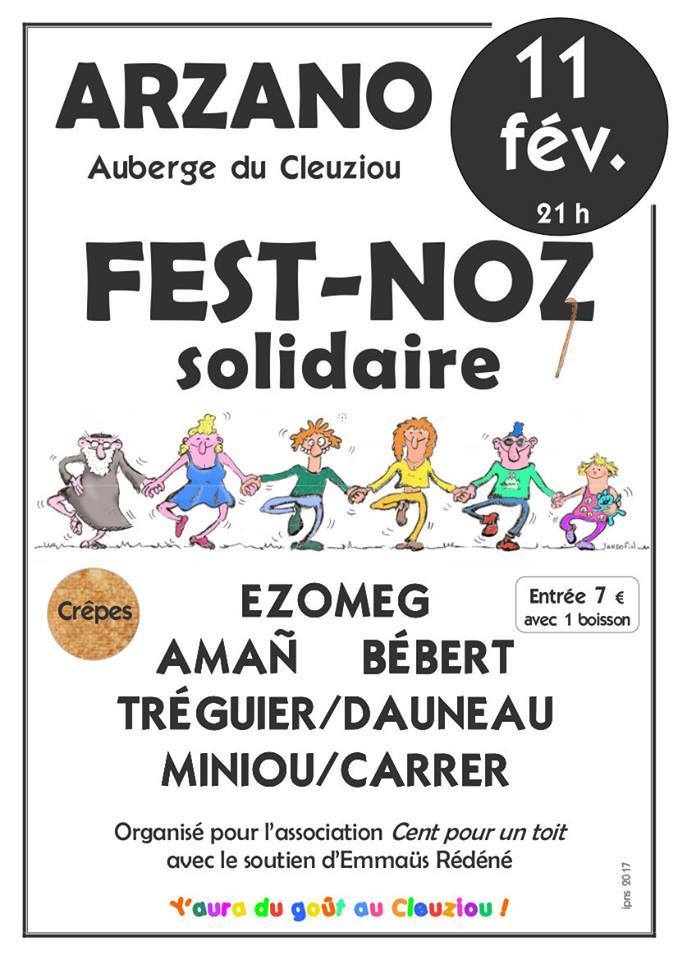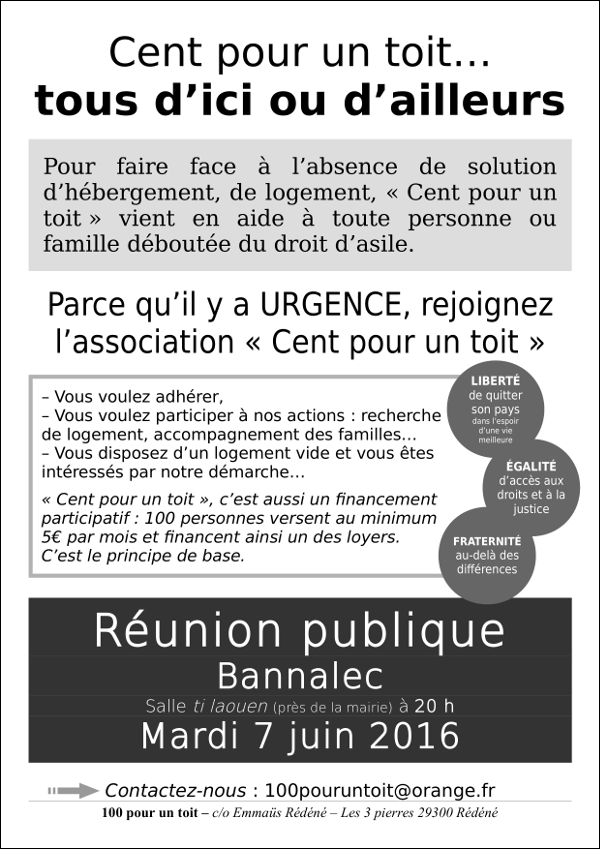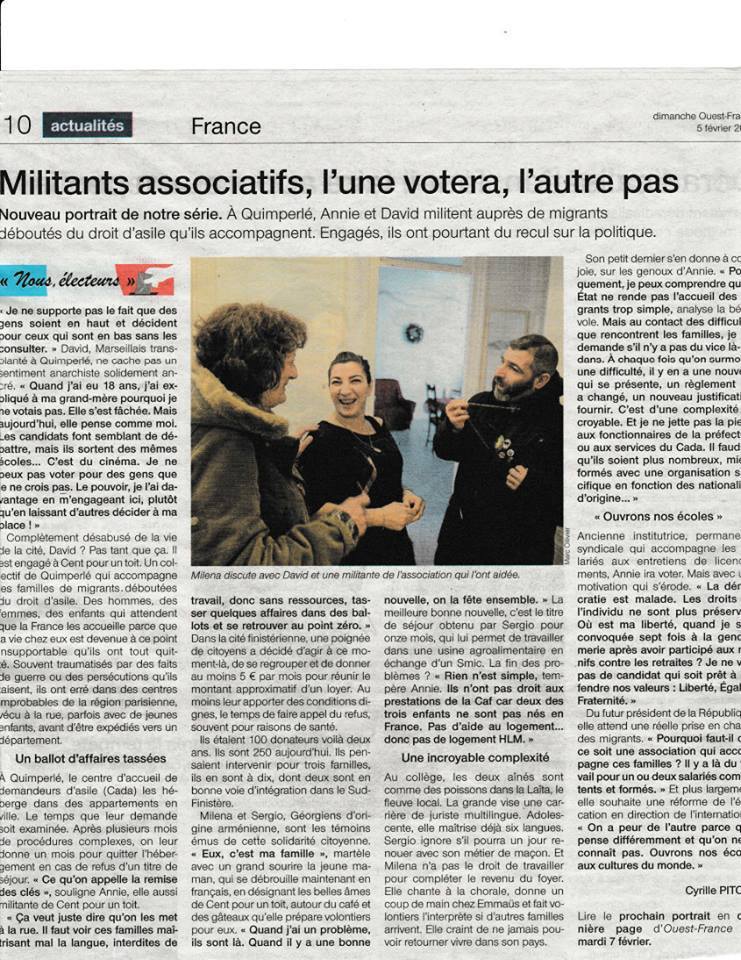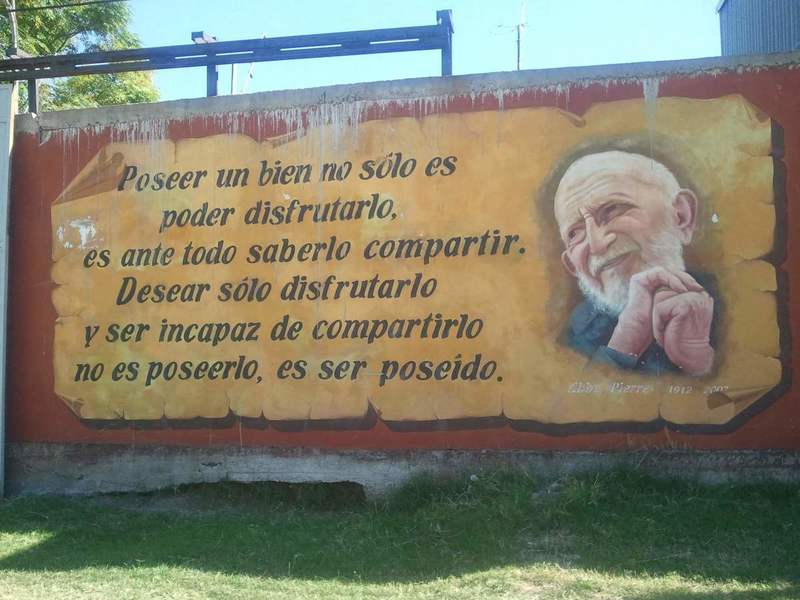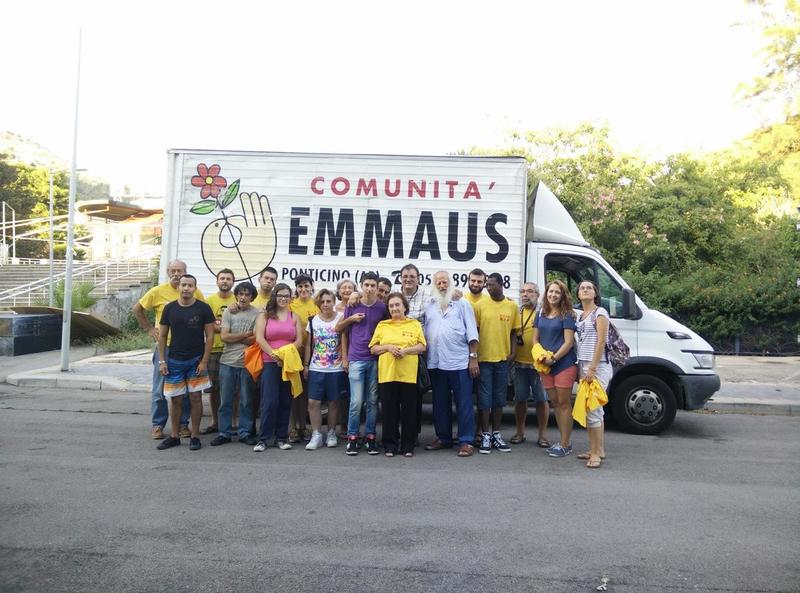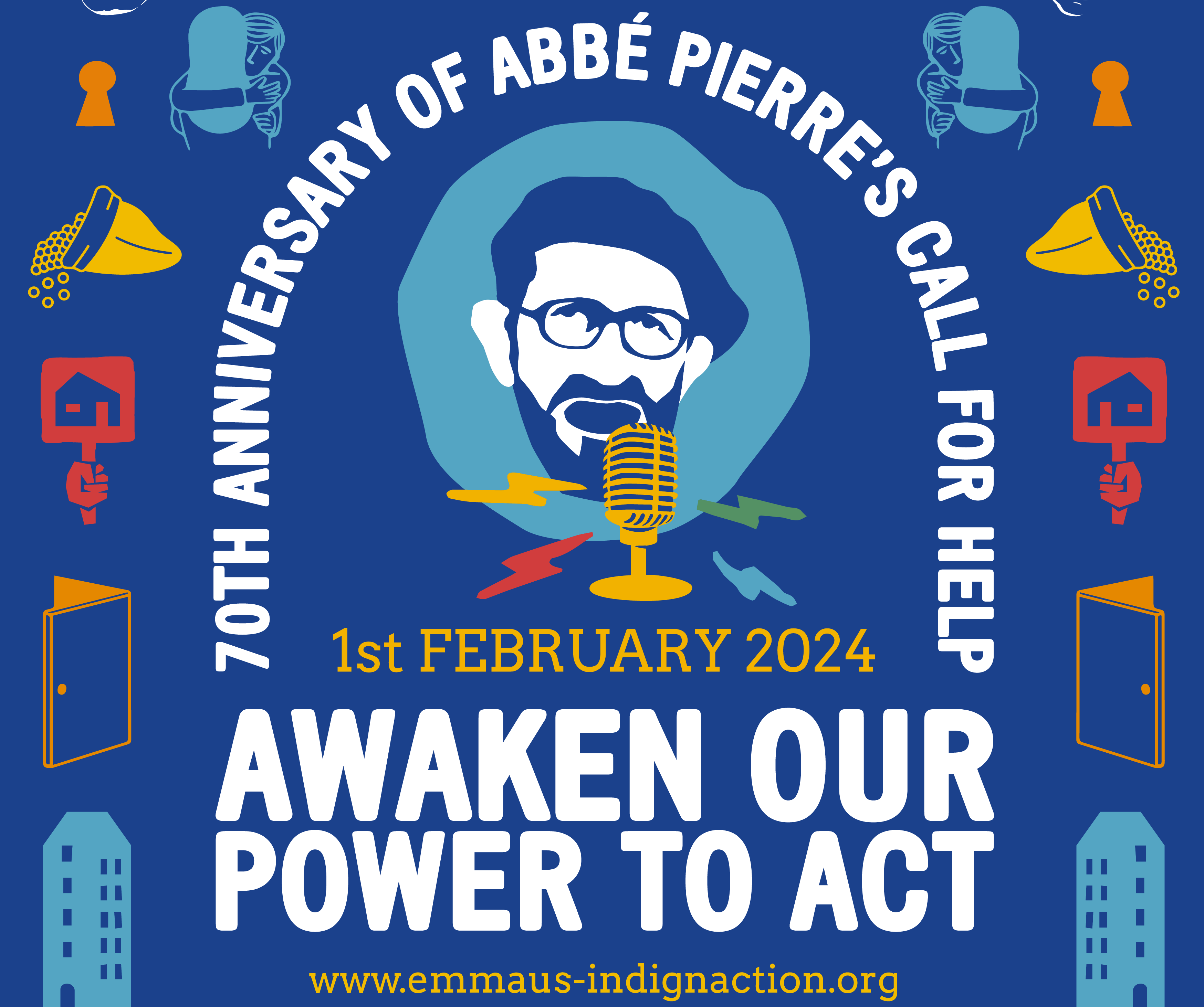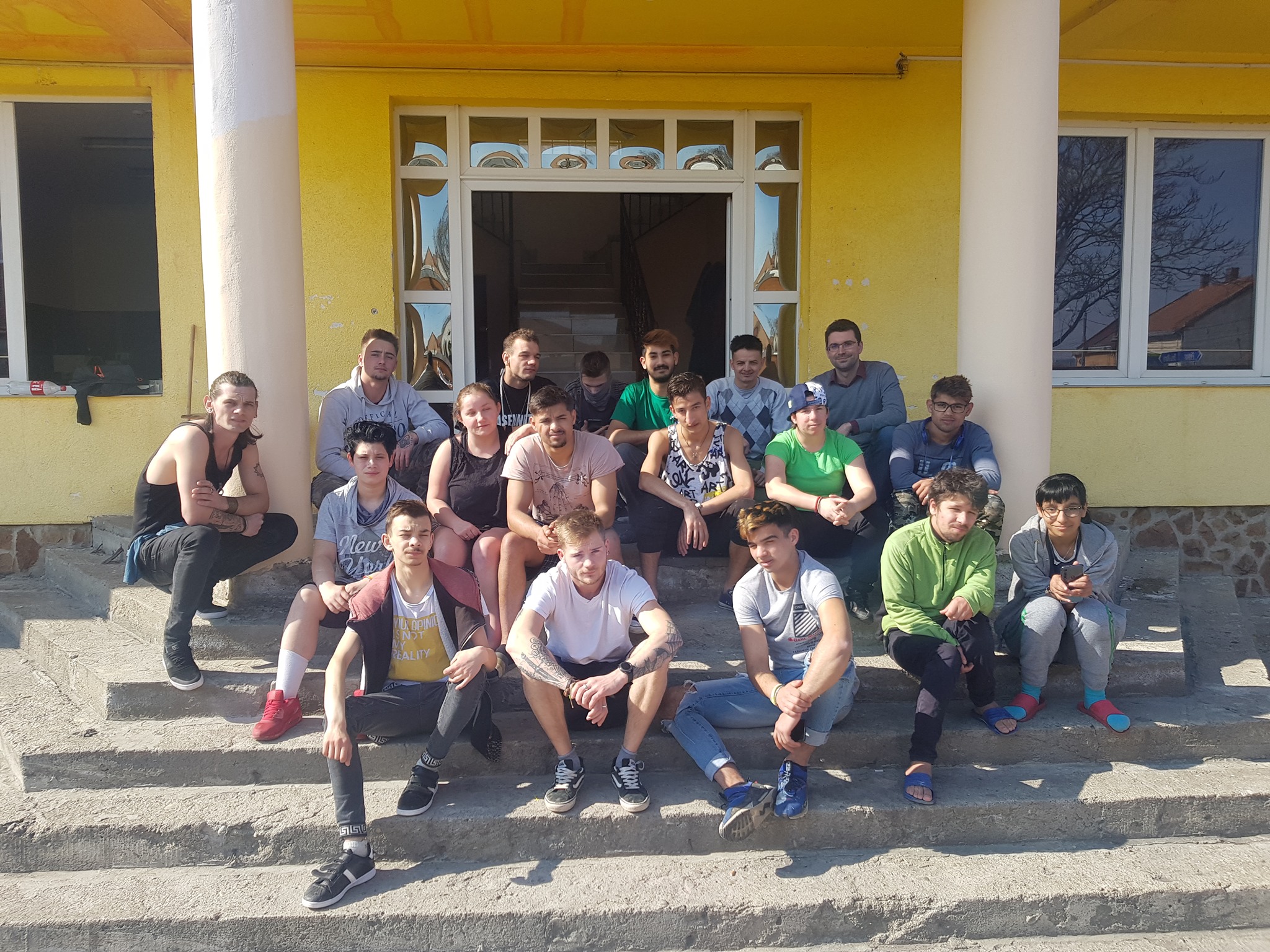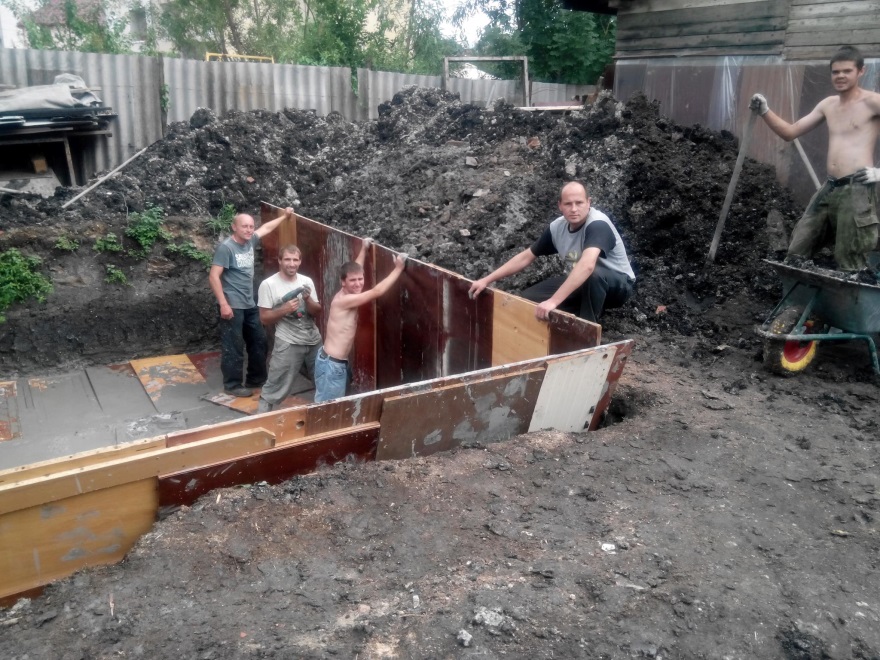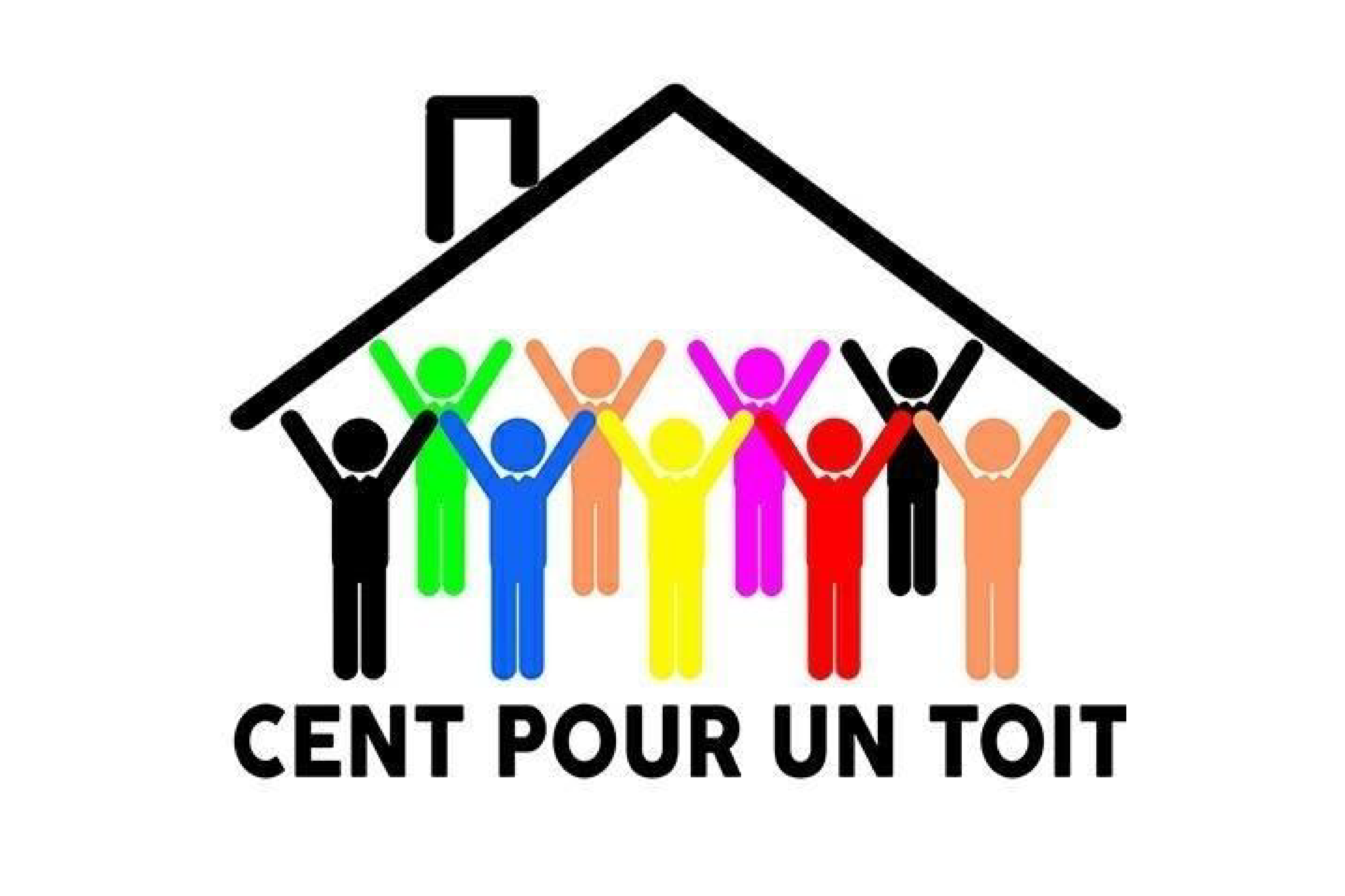
Quimperlé – France
CENT POUR UN TOIT
THE CONTEXT OF YOUR INITIATIVE
So-called “nonsuit” families, i.e. families who completed the asylum application procedure but did not obtain refugee status, should in theory “hand in their keys” a month after the French national asylum court rejects their application.
The families are supposed to use this month to find accommodation or apply for assistance to return home. In most cases, if they choose to stay in France, they end up without any accommodation. In fact, these families don’t have access to the accommodation, social reintegration centres or any other traditional forms of accommodation.
They can alternatively apply for leave to remain on different grounds.
In reality, though, they often end up on the streets.
Their “nonsuit” status means they can neither be deported nor given papers. This grey legal area leaves the families in a situation of insecurity and prevents stakeholders from acting.
THE ACTIVITIES CARRIED OUT AS PART OF YOUR INITIATIVE
• Raising awareness and lobbying local stakeholders to come up with a response in our area
• Preventing the families left on the streets from becoming vagrants, finding alternative solutions – often as a matter of urgency
• If need be, helping the families to deal with bureaucratic procedures
• Helping the families to participate and integrate in society, thus helping everyone to live together
• Raising awareness and lobbying: Elected representatives, we have met (and continue to meet) municipal and community representatives to raise their awareness about people who leave asylum detention centres. We often have to counter firmly-held beliefs and false perceptions, such as “we’re not allowed to help them”, or “they’re living in Brest, so they should go there to get help”. Since then, and now that many of the facts have been established, these arguments have given way and we are able to work together to come up with solutions for our area, although consultation meetings still need to be formalised. With regard to local residents, we’ve organised public meetings with the community in eight communes. We presented our project to the pupils at the Notre Dame de Kerbertrand private school, and we took part in a round table discussion entitled ‘Brittany – a welcoming region’ at the film festival held in the commune of Douarnenez in August 2016. We have also managed to get to know each other better by organising festive events (the annual festival ‘fest noz’, taking part in other festivals). We will continue to maintain and extend our presence in public life. With regard to other stakeholders, we’re reinforcing the links we already have with schools, pupils’ parents, teachers, other organisations and institutions such as (CDAS – the local social services commission), the CMP (medical and psychological centre), the hospital (the permanent provider of access to healthcare) and the PMI (maternal and infant protection centre). We’re also setting up consultations with other charitable organisations and raising their awareness about the problems faced by these families.
• Preventing the families left on the streets from becoming vagrants: Our network enables us to provide emergency shelter to families in a shared cottage and a rural cottage, certain individuals have also taken families into their homes, but we are aware of the limits of the solutions we provide. We thus made an agreement with municipalities that provide accommodation in exchange for a cash payment, something which is the case for five municipalities. We need, however, to continue expanding our range of both emergency and long-term accommodation options.
• Helping families with bureaucracy where necessary: This does not involve completing paperwork on families’ behalves, but helping them with the initial steps at the prefecture, social service centres, etc. We need to demonstrate that people can be more independent and formalise the procedures for them to do so. To do so, we should strengthen and develop our skills in terms of helping people access aid.
• Helping the families to participate and integrate in society: Reciprocal contracts between the organisation and families that receive support seek to boost their participation in the process. Each contract is personalised and sets out the conditions of the family’s occupation and use of the accommodation. Individual support projects help families to join in local activities and community life. The needs of each family member – man, woman or child – are accounted for, guaranteeing harmony within families.
Continuing to establish links with other organisations makes it possible for families to volunteer and/or for them to be included in leisure activities (choirs, sports clubs, etc.). Children’s’ needs have to be accounted for; attention is paid to ensuring they are schooled and integrated by helping them to take part in sport or leisure activities. A further matter we are concerned with is improving their quality of life; we monitor their health and links are established with healthcare providers (GPs, medical and psychological centres), in respect of families’ privacy.
WHO IS INVOLVED FROM OUR GROUP?
Our work relies on participative funding: a number of donors transfer money every month (their donations range from 5 to 25 euros), and we also receive ad hoc donations. We currently have 250 members and estimate that we have approximately 50 active volunteers. They renovate the accommodation we provide, help people to move house, organise events (attic sales, fest noz) and take part in local celebrations (e.g. the festival of Rias, international week). Families are involved in our activities whenever possible. Our community’s companions help to organise public celebrations. Many of them are members and make financial contributions. These events (such as fest noz, stands at festivals, etc.) enable us to raise our profile but also to sell products made by volunteers and the families: crepes, dishes from around the world, etc. The organisation doesn’t have any paid staff. Some ten friends of the Emmaus Rédéné community officially belong to it and make financial contributions to the organisation. Members who aren’t directly linked to the sector (members of our respective personal networks) make financial contributions, as does Emmaus 44 St Nazaire through its membership and donations.
We opted for a system of collective governance, shared between eight people who are tasked with organising the organisation’s development. The group of governors draws on support from local collectives or community contact persons who serve as a liaison with local institutions.
The governors meet each week on late Monday afternoon. Families arrive every Thursday morning. Families are involved in the practical side of running the organisation: they help people to move house, take part in public events (preparing meals, recounting stories, etc.). They can also join the organisation if they want.
WHICH PARTNERS ARE YOU WORKING WITH ON THIS INITIATIVE?
Photos
FUTURE PROSPECTS
– Two families (four children) have successfully left the programme.
– Our project is innovative because it has set up an organisation that unites people around a shared objective, the same situation, the same indignation, and specifically this involves people and organisations that do not pursue the same overall goals (for example, Diwan (a federation of schools), the league for human rights, Catholic aid and Emmaus). This solidarity project brings with it a powerful federating force. We have overcome our differences and are standing united around a common cause and shared ideal.
– We are the only organisation in the area to campaign on behalf of these people (whose asylum applications have been rejected). We take part in meetings between collectives of exiled people in our region. Our project stands out within this collective because it targets people who have been in the area for several years, whereas most collectives spring up around welcome and orientation centres and generally seek to help refugees who have come through Calais. Our project takes a long-term and inclusive approach.
– We have concluded agreements with five communes: Scattered accommodation makes it easier for people to integrate into local society and prevents ghettoisation. Experience spreads between communes and they feed off each other’s successes.
– We publish a newsletter, and we are present in the network of collectives working for people in exile. We take part in round tables and receive requests for information about our project from other regions.
– We also published an article about our project in a professional journal entitled ‘the social connection’. A blog is being set up but we already have a Facebook page which has 340 ‘likes’.
– We take part in various festivals, such as: ‘the smugglers of light’ in Bannalec, the international week of Quimperlé, the round table of the cinema festival at Douarnenez, rias of the communes of Quimperlé community, and the Taol Kurun festival in Arzano at which Nathalie Péré-Marzano from Emmaus International and the French actor Jacques Bonnaffé, who works with the theatre project ‘someone who wants to cross’ made speeches.
– At the local level, we place great importance on intercultural exchange, the network from the region of Brittany is open to others, the research and social assistance centre is a particularly rich venue of intercultural exchange and the network of organisations includes choirs, which are a great social melting pot. By joining and participating in these networks, the families receiving support are able to develop their own support structure.
– Finally, in 2016, we obtained a subsidy of 10,000 euros of support from the Abbé Pierre Foundation, and in 2017 the Foundation of France donated 15,000 euros.
WOULD YOU LIKE TO ADD ANY INFORMATION ABOUT YOUR INITIATIVE?
WHAT ARE YOUR PROSPECTS?
• We need to develop our communication with the general public to support our efforts to lobby public authorities
• Our next general assembly (22 March 2017) should encourage others to integrate in our group of governors to relieve them of their current workload and lower our level of support
• We should increase the number of members and, through town halls, find accommodation made available without charge in other communes, so we need to hold public meetings
• We need to seek new sources of funding
